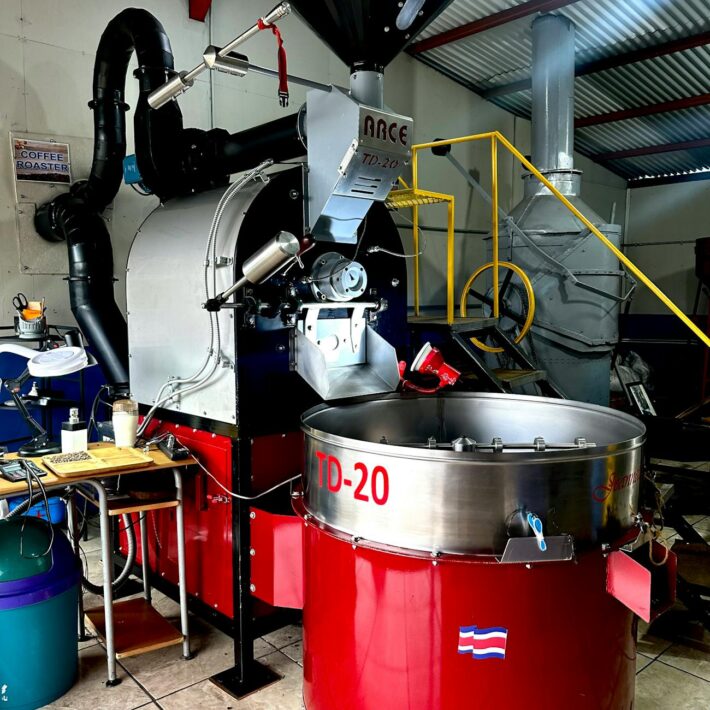Greenhouse Business Ideas to Start in 2024

Contents
Greenhouse Business Ideas to Start in 2024
The greenhouse industry offers a vibrant opportunity for small business owners looking to delve into sustainable entrepreneurship. As consumers increasingly demand fresh and local produce, the potential for greenhouse operations has never been more promising. By engaging in greenhouse farming, you not only contribute to the environment but also tap into a lucrative market—making it an ideal business idea for aspiring entrepreneurs.
Overview of Greenhouse Business Opportunities
The demand for greenhouses is on the rise. Entrepreneurs have a plethora of niches available to explore, from producing savory vegetables to cultivating vibrant flowers. This array caters to urban dwellers who crave locally sourced goods, even in cities where space is at a premium. But how do you decide which greenhouse business idea will resonate the most with your target market?
Types of Greenhouse Business Ideas
Here’s a closer look at various greenhouse business ideas that could shape your entrepreneurial journey in 2024.
Vegetable Farming
Growing vegetables in a greenhouse can yield profits year-round. When it comes to crops, tomatoes, cucumbers, and lettuce are always in demand. They thrive in a controlled environment, allowing you to achieve consistent quality and size, something not always possible with outdoor cultivated vegetables. As a business idea, vegetable farming not only promotes healthy eating but also positions you as a supplier of fresh produce.
 Photo by Ahmed ツ
Photo by Ahmed ツ
Herb Cultivation
Herbs like basil, cilantro, and mint are culinary staples and garner high demand in both homes and restaurants. The beauty of growing herbs is that they need minimal space and can be marketed both fresh and dried. With a greenhouse, you can harvest fresh herbs year-round, increasing your profitability and filling a vital gap in the local market.
Flower Production
Flowers can be a rewarding specialty, providing opportunities for local peace offerings or grand events. Cultivating flowers allows you to connect with local florists, wedding planners, or even farmers' markets. By growing varieties that bloom throughout different seasons, you can create exclusive floral arrangements, leading to enhanced customer engagement.
Plant Nursery
A plant nursery, where you cultivate young plants and seedlings, serves a burgeoning market driven by DIY home gardening. From ornamental plants to native species, you can fulfill the desires of landscape designers and home gardeners alike. Such a nursery not only builds relationships with local communities but also broadens your customer base through various channels.
Aquaponics Farming
Thinking creatively? Why not explore aquaponics? This sustainable method combines fish farming with hydroponics, creating a closed-loop system that minimizes waste and maximizes resources. It’s innovative and eco-friendly, making sure you are on the cutting edge while reducing your environmental impact—a compelling proposition for eco-conscious consumers.
Organic Gardening
With the uptick in organic produce popularity, small businesses focusing on organic gardening have a clear advantage. Consumers are willing to pay a premium for organic fruits and vegetables, and you can cater to that demand right from your greenhouse. Certifications can further bolster your credibility, making organic operations an attractive business idea.
Succulent and Cacti Sales
The trend of low-maintenance plants, especially succulents and cacti, has blossomed in urban settings. Their unique aesthetics and easy care make them perfect companions for busy city dwellers. Selling these resilient plants could become a niche market allowing you to penetrate the younger demographic looking to green their living spaces.
Microgreens Farming
Microgreens are small edible greens that pack a nutritional punch. They can be harvested quickly—often just in a few weeks—making them a high-return investment. As restaurants continue to explore ways to elevate their menus, entering the microgreens market could be lucrative for a small business owner aiming for success without vast land requirements.
Vertical Farming
Space-efficient vertical farming utilizes wall space to grow crops in a stacked formation, fully utilizing vertical territory. This innovative approach maximizes crop output in small urban spaces and requires less water than traditional farming methods. Adopting vertical farming techniques can set your business apart in a competitive market.
Specialty Fungi Farming
Growing unique fungi like shiitake and oyster mushrooms offers immense upside in local markets. Gourmet mushrooms are often used in high-end dining, and they require little space. They thrive in ideal conditions and can be promoted as both culinary delights and healthful additions to meals, enhancing their appeal across various demographics.
Seasonal Crop Production
Managing a greenhouse allows you to extend the growing season for various crops—making them available when they are not often attainable from outdoor farms. When the frosty months arrive for traditional farmers, you can cater to that market gap, providing fresh produce to eager customers.
Community Supported Agriculture (CSA) Programs
Creating a CSA allows you to bring fresh produce directly to consumers, increasing the bond between producer and eater. It stimulates a sense of community and commitment toward local agriculture while providing you with upfront investments from members eager to receive fresh items weekly.
Educational Workshops and Tours
If you’re passionate about sustainable farming practices, consider hosting workshops and tours in your greenhouse. Education expands your reach and builds a reputation in your community as an expert in sustainable practices. Plus, it generates an additional income stream, boosting your business's financial health.
Eco-Friendly Landscaping Services
Why not combine landscaping with your greenhouse offerings? By using your plants in local landscape designs, you enhance your business's appeal while promoting your own greenhouse's specimens. This service fits in nicely with eco-friendly trends gathering momentum among consumers.
Bulk Plant Sales to Businesses
There’s a growing demand for plants in commercial settings like restaurants and offices. Selling bulk plant offerings not only diversifies your revenue sources, but positions you as a go-to supplier, solidifying lasting commercial partnerships.
Starting Your Greenhouse Business
Excited to begin your greenhouse venture? Here’s what you need to know before planting your first seeds.
Research and Planning
Market research is non-negotiable. Discover what crops are in demand, who your competitors are, and identify your target customer. A solid business plan should guide your steps and may include financial projections and goals.
Financial Considerations
Funding your greenhouse requires an initial investment. Factor in costs for infrastructure, utilities, and materials. Make sure to anticipate operating costs and devise a technique to boost profitability. Scrutinizing your expenses can pave the way for success.
Regulatory Compliance
Navigating the regulations in your area is crucial. Research necessary licenses, permits, and environmental considerations beforehand to avoid complications later on. Being proactive can save you headaches in the long run!
Marketing Strategies
How will you attract customers? Leverage social media, farmer's markets, and local partnerships to promote your brand. Consider collaborating with local restaurants that value fresh produce—this can be a win-win for everyone involved.
Building a Brand Identity
Creating a strong brand identity will help customers connect with your greenhouse and increase trust. Don’t overlook the importance of a professional logo design that encapsulates your values and promotes recognition. Think of logo design as the face of your brand—fresh, clear, and unforgettable.
Conclusion
Greenhouse business ideas stand at an exciting intersection of sustainability and profit, providing unique opportunities for small business owners in 2024. By choosing an idea that resonates with you and assessing community needs, you can establish a successful enterprise. It's time to cultivate your entrepreneurial dreams and reap the benefits. With thoughtful planning and execution, you can make your greenhouse journey thrive and grow profits in the process. Are you ready to get started?

As our Chief SEO & Branding Strategist, Robert Ellison is a digital marketing visionary with over 25 years of experience transforming brands through smart, data-driven SEO and impactful storytelling. Known for his expertise in aligning technical SEO with authentic brand narratives, he leads our team in creating strategies that boost search rankings while building strong, sustainable brand identities. A trusted advisor and frequent industry speaker, Robert combines deep technical knowledge with creative insight, helping our clients not only reach the top of search results but also genuinely connect with their audiences.








